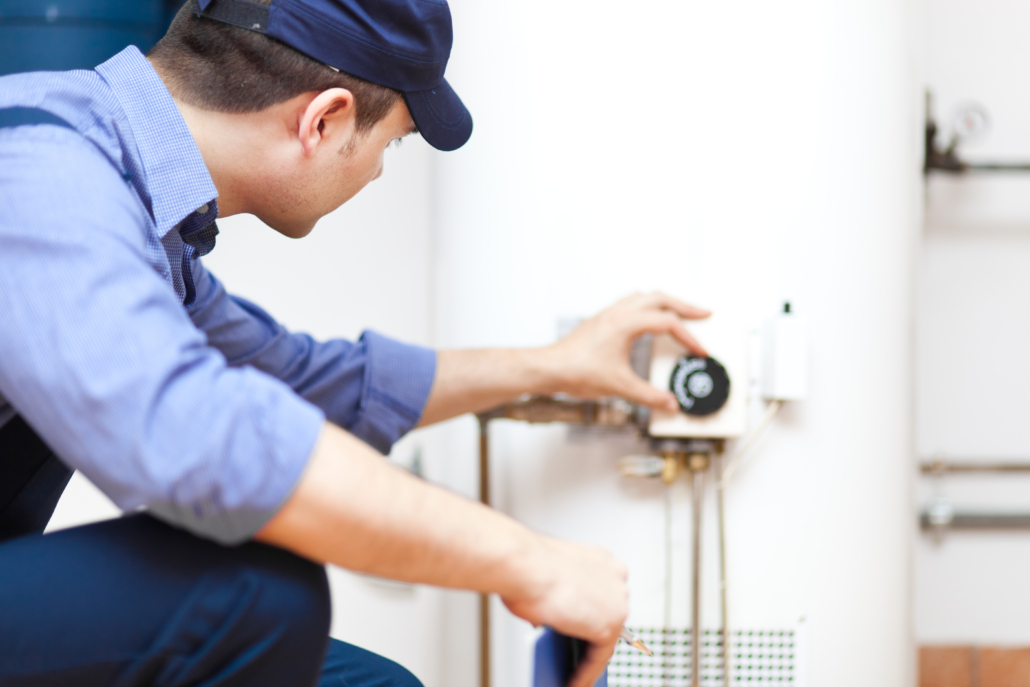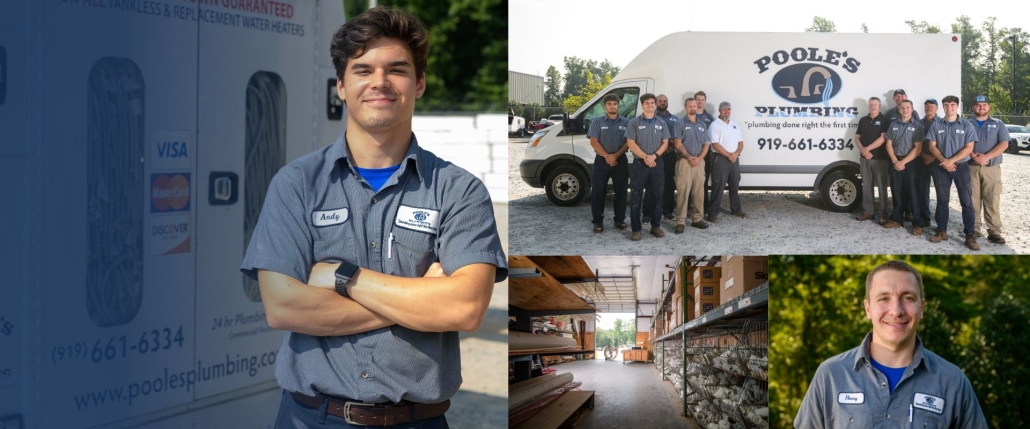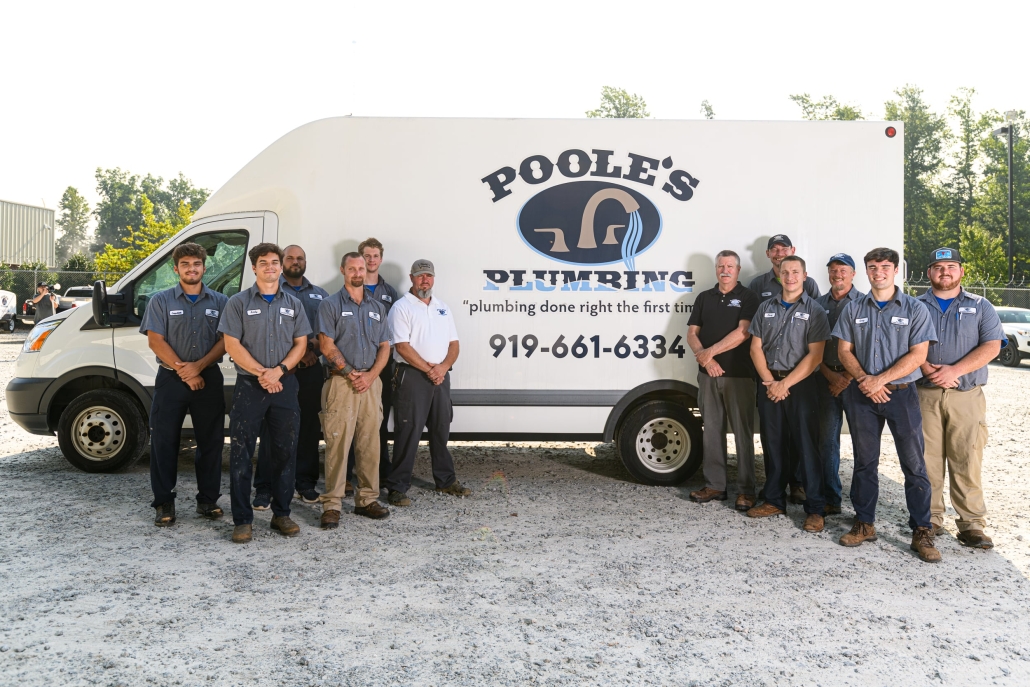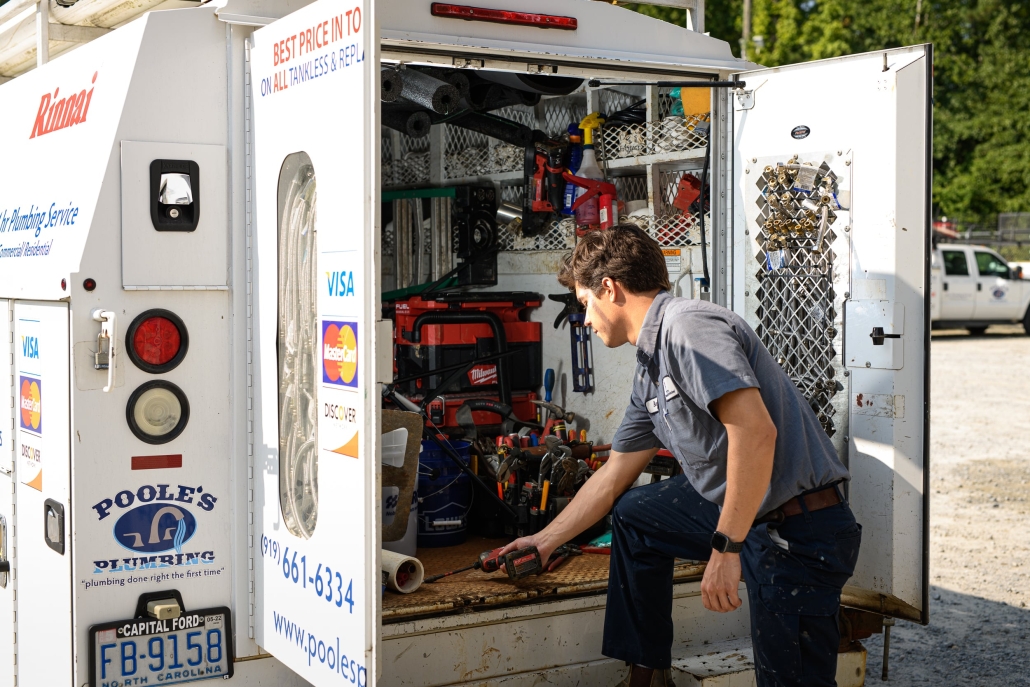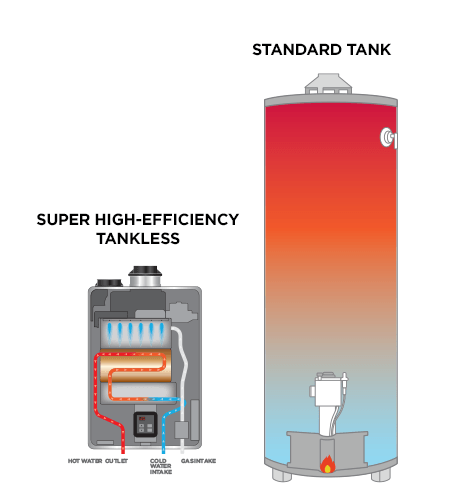Tankless or Tank Water Heater Not Working? 17 Easy Fixes Raleigh Homeowners Can Try
If your water heater suddenly stopped delivering hot water—or your Tankless or Tank Water Heater Not Working?—there are a handful of simple, quick checks you can perform in minutes. Below are fast, safe steps Raleigh, Cary, Garner, and Apex homeowners can try on both tankless and tank (storage) water heaters. If you smell gas, see scorch marks, or the tank body is leaking, stop and call a professional immediately.
Fast fixes for tankless water heaters
- Confirm power & gas
- Check the dedicated breaker/GFCI and the unit’s service switch. For gas, make sure the valve is fully open (handle parallel to the pipe) and your LP tank isn’t empty.
- Cycle power / clear lockout
- Turn the unit OFF for 30 seconds, then ON. Many controllers clear minor ignition errors after outages.
- Open the tap more
- Tankless models need a minimum flow to fire. Open the hot tap farther or switch to a higher-flow fixture for testing.
- Set the temperature to ~120°F
- Too low a setpoint + a mixing valve can feel lukewarm. Start at 120°F.
- Clean the inlet water filter screen
- There’s a small strainer where the cold line enters the unit. Shut water off at the isolation valves, pop the screen out, rinse, reinstall.
- Clean faucet/shower aerators
- Sediment reduces hot-side flow and can prevent firing. Rinse aerators and showerheads.
- Check intake/exhaust & condensate
- Clear leaves, lint, or snow at the vent/intake. Make sure the condensate hose drains freely (no kinks).
- Winter hiccups?
- Thaw/insulate exterior lines. Built-in freeze protection requires power—don’t shut off power during hard freezes.
When to call Poole’s for tankless: Persistent error codes, burner lights that die repeatedly, scale buildup requiring descaling (we handle this quickly), or any gas/venting concern.
Fast fixes for tank (storage) water heaters
- Electric: reset power
- Flip the breaker fully OFF/ON. With power OFF, press the high-limit reset (red button) behind the upper panel/insulation. If it trips again, call us.
- Gas: relight the pilot
- Verify the gas valve is ON. Follow the lighting instructions on your tank’s label. If the pilot won’t stay lit, stop and call.
- Set to ~120°F
- On many dials A/B/C ≈ 120–140°F. Start at ~120°F for safety & efficiency.
- Partial sediment flush (2–3 minutes)
- Attach a water hose to the drain valve and open it briefly to purge the sediment, then close it. Full flushes are great but this quick purge often restores performance.
- Open top valves fully
- Ensure the cold inlet and hot outlet valves at the top of the tank are fully open.
- Fix “runs out fast”
- Besides sediment, a mis-set mixing/anti-scald shower valve can blend too cold. Adjust the shower trim per the manufacturer’s directions.
- Noisy rumbling
- Usually sediment. Do a partial flush above; schedule a full service if noise persists.
- Rotten-egg odor (hot side)
- Temporarily raise the temperature to 140°F for a few hours, then return to 120°F and run hot water. Persistent odor typically needs anode/disinfection service.
- T&P valve dripping
- Never cap it. Occasional drips point to thermal expansion; continuous flow needs professional diagnosis ASAP.
Quick 5-step diagnosis (both types)
- Power/Gas: Breaker on, service switch on; gas valve open / LP not empty.
- Controls: Temp ~120°F; clear error/reset; any remote/controller powered.
- Water movement: Open tap further; clean aerators; clean tankless inlet screen.
- Restrictions: Check vent/intake, condensate (tankless), and do a short sediment flush (tank).
- Re-test a single fixture: Single-handle showers can mislead—verify at a simple sink first.
When to stop and call a pro immediately
- You smell gas, see soot/scorching, or the tank body leaks
- The breaker trips repeatedly or you see melted wiring/terminals
- The T&P valve won’t stop discharging
- Error codes persist after a reset, or there’s no improvement after the steps above
Did you know? At Poole’s Plumbing, we offer same-day water-heater service across Raleigh, Cary, Apex, Garner, and Wake County—plus our Best Price in Town guarantee on new and replacement water heaters.
Call now: 919-661-6334
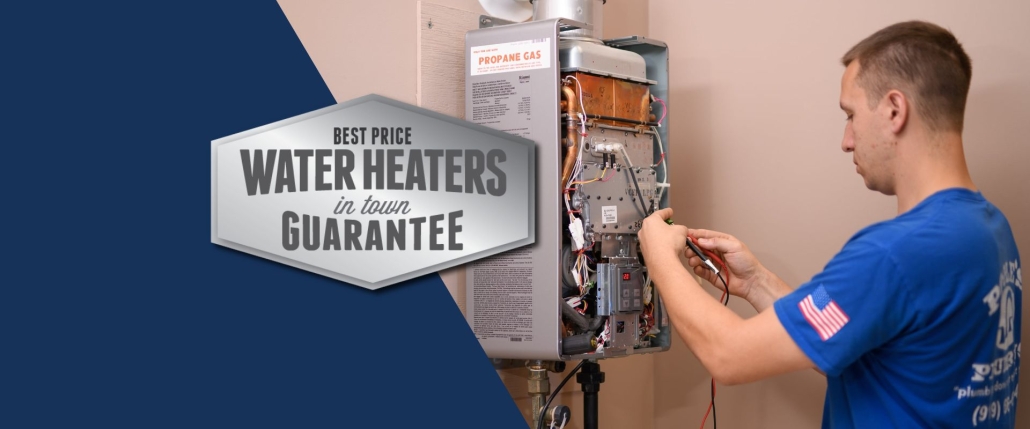
Why Raleigh homeowners trust Poole’s for water-heater service
- Best Price in Town—Guaranteed on all new and replacement water heaters
- Tankless specialists: Descale, diagnostics, and high-efficiency installs
- Up-front pricing & options: Repair vs. replace clarity before work begins
- Local + fast: Serving Wake County for decades with same-day availability
Pro maintenance that pays off
- Annual tankless service (inlet screen, descaling, condensate check) extends lifespan and keeps warranty valid
- Annual tank flush reduces energy use and noise
- Anode inspection on tank models prevents premature tank failure
- Expansion tank & PRV check protects fixtures and the T&P valve
Local service areas
Raleigh • Cary • Apex • Garner • Holly Springs • Fuquay-Varina • Clayton • Morrisville • Knightdale • Wake Forest • Rolesville • Zebulon
FAQs
How do I know if I should repair or replace my water heater?
Age and tank condition tell the story. Tanks >10–12 years with rust or leaks usually warrant replacement. Tankless units often last longer with regular service. We’ll show you both options on site.
Is 140°F better than 120°F?
120°F is safer and efficient for most homes. 140°F can help with odor/bacteria concerns temporarily, but consider mixing valves and professional disinfection for persistent issues.
Why does my tankless go hot-cold-hot (“cold sandwich”)?
Minimum flow, inlet screen debris, or a shower mixing valve set too cool. Clean screens/aerators and confirm setpoint; if it persists, we’ll test sensors and scale.
Can I descale a tankless myself?
With service valves and the right pump/solution, yes—many homeowners can. If you’re unsure or see error codes, schedule a professional descale.
